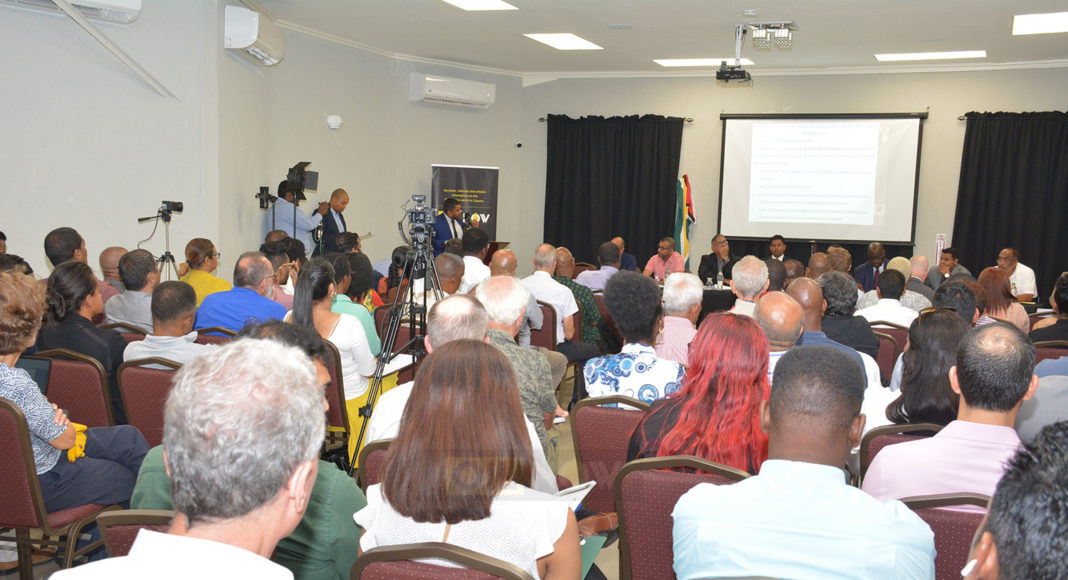An expert at Americas Market Intelligence (AMI) says oil firms operating in Guyana and government should meet regularly, in good faith, to discuss constraints facing the companies in the country and develop long-term targets and commitments that go beyond merely establishing local content quotas.
This is the advice of Dr. Remi Piet–the Senior Director at Americas Market Intelligence (AMI) and co-leader of the firm’s Natural Resources and Infrastructure Practice–on how Guyana’s local content targets should be approached.
In an opinion piece published recently, Dr. Piet– in examining Guyana’s concerns and needs as it relates to its local content goals–said this should be looked at as more than just meeting a quota and there should be communication between companies and the government on what the local content objectives are. “The solidification of a dialogue and oversight process is essential,” he said.
In the Local Content Policy that was developed and finalised under the previous Guyana Government, it was stated that oil and gas operators must submit and execute yearly Local Content Plans, 60 days prior to the beginning of each year. “Operator’s Local Content Plans provide a forward-looking, efficient, focused and flexible mechanism for government and Operators to identify, plan, implement and assure delivery of local content,” the Policy Document outlined. It further explained that the estimated levels of local content utilisation and the extent of activities and programs within an Operator’s Local Content Plan shall be commensurate with the stage of project development/s.
However, while this Policy document was completed and presented to the previous Cabinet, it was never laid in the National Assembly. Upon assuming office, the new President, Dr. Irfaan Ali established a Local Content Panel that has now been tasked with working on Guyana’s Local Content Policy and legislative framework as the new administration is leaning towards a more stringent approach to local content. There have been talks of local content legislation.
According to Dr. Piet, “adopting a local content law is popular with citizens who want to make sure somehow that the issue is being tackled by their government. The simplest way for the government is to pass a law.” However, he warned that the “mere establishment of a quota would fail to include guidance on the monitoring processes and regular dialogue needed between government, stakeholders and companies.”
He pointed to Mozambique, a country that he says has development conditions that are similar to Guyana’s. In that country, he said the government has opted so far for relatively low legal local content requirements while large energy actors such as Total focus on the quality of local content processes themselves rather than a hard number.
“Local content strategies focus on efficient engagement and communication between companies and authorities advocating for dialogue and an understanding of overall local content challenges to be addressed in the country,” the analyst said. He posited that the key to success for the government is to channel resources into a common survey of local content potential in the country and facilitate development beyond the energy sector to ensure diversification of the economy.
“For companies, the focus needs to be on developing local skills and securitizing opportunities for local content within suppliers’ contracts. All this in a transparent manner using local content management platforms with results made available to citizens,” he emphasised.



